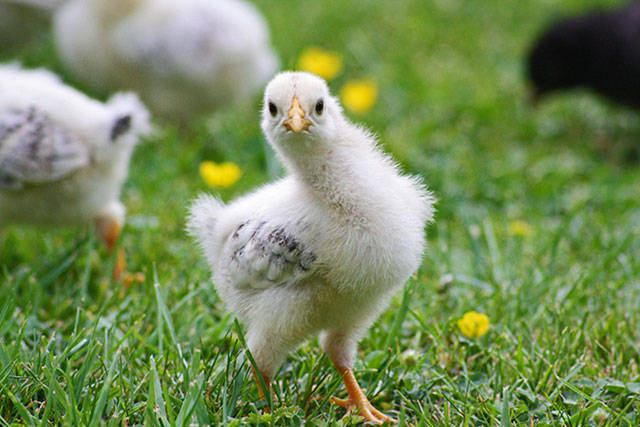The following was written by Lindsay Bosslet for Public Health Insider:
On June 2, the Washington State Department of Health announced an ongoing Salmonella outbreak associated with live poultry. As of the latest update on this outbreak, 16 people in Washington (including two in King County) have been diagnosed with Salmonella, though the outbreak is affecting people nationwide. We sat down with Public Health Veterinarian Beth Lipton to learn more about this disease and how to prevent illness.
Is an outbreak like this unexpected? Why are we seeing so many cases right now?
Salmonella outbreaks linked to live poultry, especially baby poultry like chicks and ducklings, have been happening regularly but have increased in recent years as more people keep backyard flocks. In 2016, a record number of illnesses across the country were linked to contact with backyard baby poultry – 895 reported cases in 48 states, including 209 hospitalizations and 3 deaths. So far in 2017, there are 372 reported cases in 47 states.
Besides being especially cute, what’s so special about baby poultry (chicks and ducklings)? Should I be worried about adult poultry too?
Salmonella is a common bacteria in the intestines of baby poultry. Baby poultry shed the bacteria in their droppings at a high frequency. While adult poultry may also carry Salmonella, they are less likely to shed the bacteria in their droppings and make people sick. You should always wash your hands after handling all poultry, or any animal for that matter.
Do chicks and other poultry carrying Salmonella look sick?
Chicks and other baby poultry that have Salmonella in their intestines often do not look or act sick. Because of this, it is really important that everyone who has contact with the birds take steps to prevent illness.
I know I’m supposed to wash my hands thoroughly after handling poultry. Is there anything else I can do to prevent illness?
I can’t overstate the importance of good handwashing. Wash with warm water and soap for at least 20 seconds (sing “Happy Birthday” twice!), paying extra attention to finger tips, between fingers, the backs of hands, and the bases of thumbs. If warm water and soap isn’t available immediately after handling, start with hand sanitizer and follow up with a good wash later. Caregivers should help kids wash hands to make sure they do a thorough job. When handling poultry, don’t touch your face or mouth because you could accidentally ingest the bacteria. If you have long hair, it’s best to keep it tied back. Avoid eating and drinking when around live baby poultry and areas where they live and roam.
Beyond that, don’t keep baby poultry in your home, and don’t wash their dishes, cages, or other supplies inside either. And, as you said, little chicks and ducklings are very cute, but don’t snuggle or kiss them.
If you raise poultry at home, check out this guide from the CDC for more prevention tips.
What if I get sick after handling live poultry?
If you develop diarrhea, fever, or abdominal cramps and have had recent contact with live poultry, you should call your health care provider. Let your provider know about your contact with poultry.
For most people, the illness lasts 4-7 days and they recover without treatment, although certain people are more at risk for severe illness, such as children under the age of 5, older adults, and people with weakened immune systems. It is recommended that people at risk for severe illness not handle or touch chicks or other baby poultry.
Does Public Health regulate backyard chicken flocks?
Public Health does not regulate backyard chicken flocks or have knowledge of how many flocks and birds there are in King County. Public Health does permit and inspect poultry retailers in King County, and we require them to: provide educational material regarding the risk of Salmonella to customers purchasing live poultry, place educational posters where the birds are displayed, provide hand washing stations or hand sanitizer next to poultry display areas, and have a plan to guide effective sanitation and disease prevention measure


